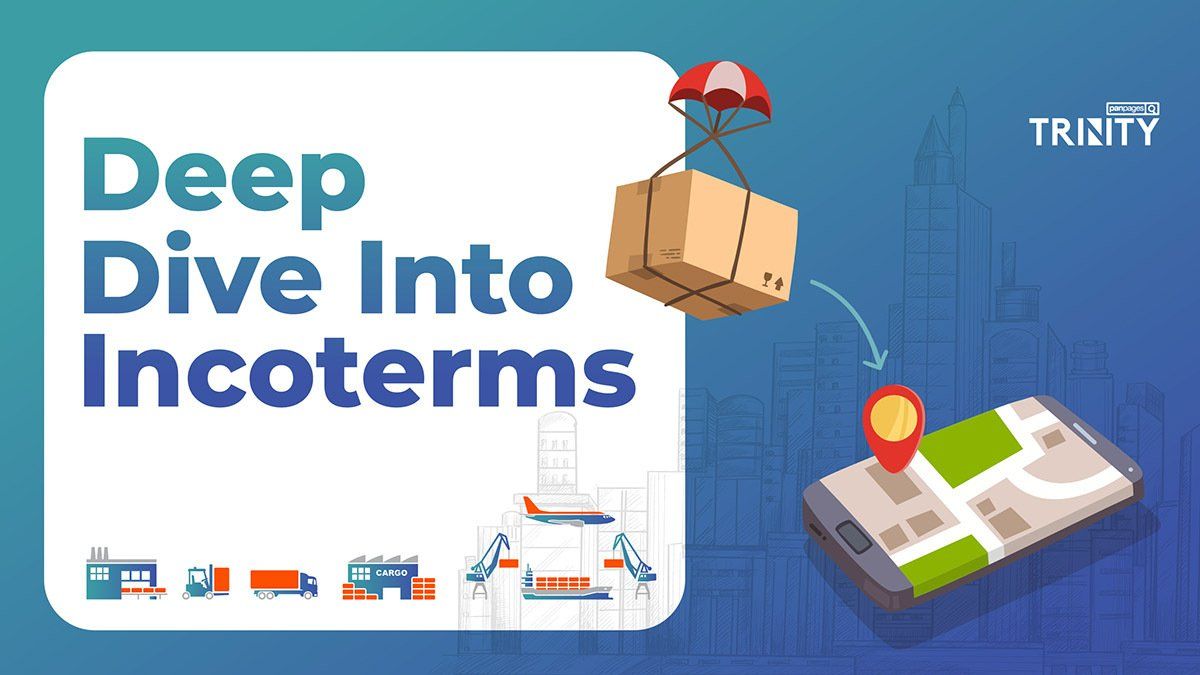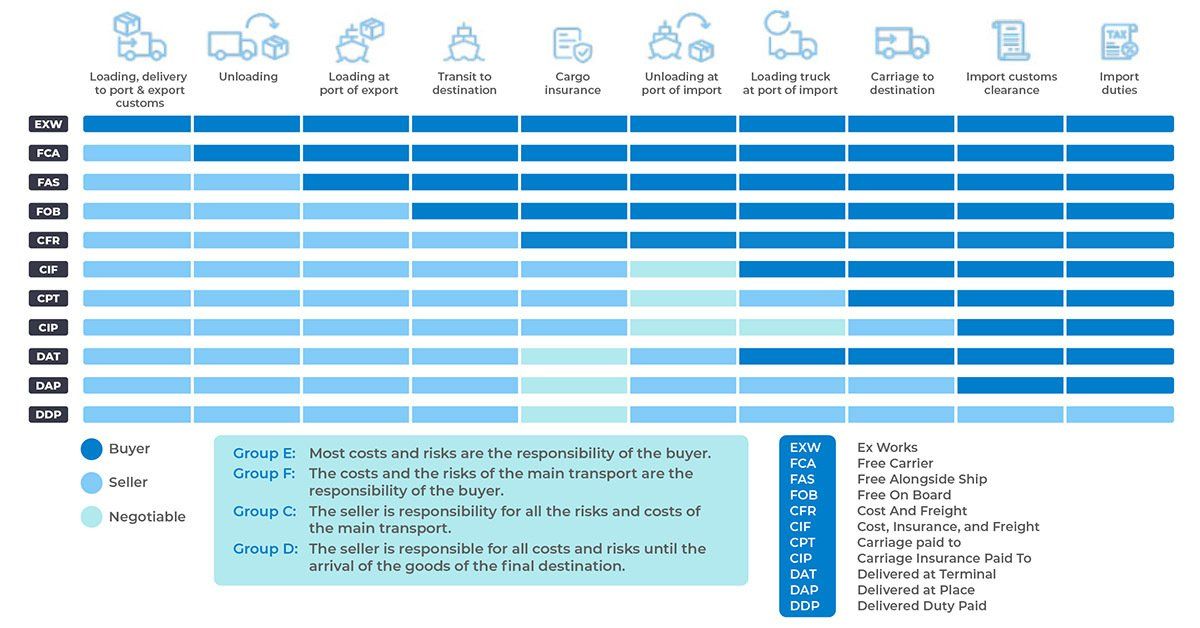Deep Dive Into Incoterms

In the previous article, we’ve explained that what is Incoterms, the importance of Incoterms to export business and the 4 groups of Incoterms when comes to quoting. To read the previous article, click here.
Today, let’s dive into each of the incoterms and understand where the goods will be delivered, who arranges the transport, who is responsible for ensuring the goods and who pays for insurance and who handles customs procedures and who pays any duties and taxes.

The Incoterms below apply to any mode of transport.
EXW- Ex Works (named place of delivery)
The seller makes the goods available at the seller’s location, the buyer bears all the transportation costs and also the risks of bringing the goods to their final destination.
FCA- Free Carrier (named place of delivery)
The seller is responsible for the delivery of goods to a named carrier. Responsibility for cost and risk then passes to the buyer.
CPT- Carriage Paid To (named place of destination)
The seller incurs the risks and costs associated with delivering goods to a carrier to an agreed-upon destination.
CIP- Carriage and Insurance Paid to (named place of destination)
The seller pays for the carriage and insurance to the named overseas destination point, but risk passes when the goods are handed over to the first carrier.
DPU- Delivered at Place Unloaded (named place of destination)
The exporter arranges carriage and delivery of the goods, ready for unloading at the named place. The seller is required to unload the goods at this destination.
DAP- Delivered at Place (named place of destination)
A seller agrees to pay all costs and suffer any potential losses of moving goods sold to a specific location. Import customs clearance and all import duties must be made by the importer.
DDP- Delivered Duty Paid (named place of destination)
The seller is responsible for delivering the goods to the named place in the country of the buyer, and pays all costs in bringing the goods to the destination. Import customs clearance and import duties must be made by the exporter.
The Incoterms below apply to any ocean only.
FAS- Free Alongside Ship (named port of shipment)
Requires the seller to place the goods alongside the vessel nominated by the buyer.
FOB- Free on Board
Shipping means that the supplier retains ownership and responsibility for the goods until they are loaded ‘on board a shipping vessel. Once on the ship, all liability transfers to the buyer.
CFR- Cost and Freight
The seller of the goods is required to arrange for the carriage of goods by sea to a port of destination and provide the buyer with the documents necessary to obtain the items from the carrier.
CIF- Cost, Insurance and Freight
The seller is responsible for the cost and freight of bringing the goods to the port of destination specified by the buyer.
Incoterm FAQ
1.Who decides what Incoterms to use?
The Incoterm agreement is based on negotiations between the buyer and seller. However, there are other parties who may influence the Incoterm agreement, this includes:
- Transport providers
- Insurance companies
- Banks
- Customs Brokers
2.What are the factors that I should consider when deciding which Incoterms is the best fit for my business?
First, you need to ask yourself, how much responsibility is your business comfortable with?
When it comes to the transport and safe delivery of goods, it is important to decide if your business wants to engage with a transport company and be responsible for the shipment or pass this on to your buyers.
If you priorities efficient delivery periods and look into minimizing the level of damaged goods delivered. That means you wish to retain more control of the transportation process, therefore, you should be selecting an Incoterm that gives you this control.
Start your export business using the right Incoterms today!
Would like to know more about Incoterms? Speak to our consultant and claim a
FREE digital audit report from us!

